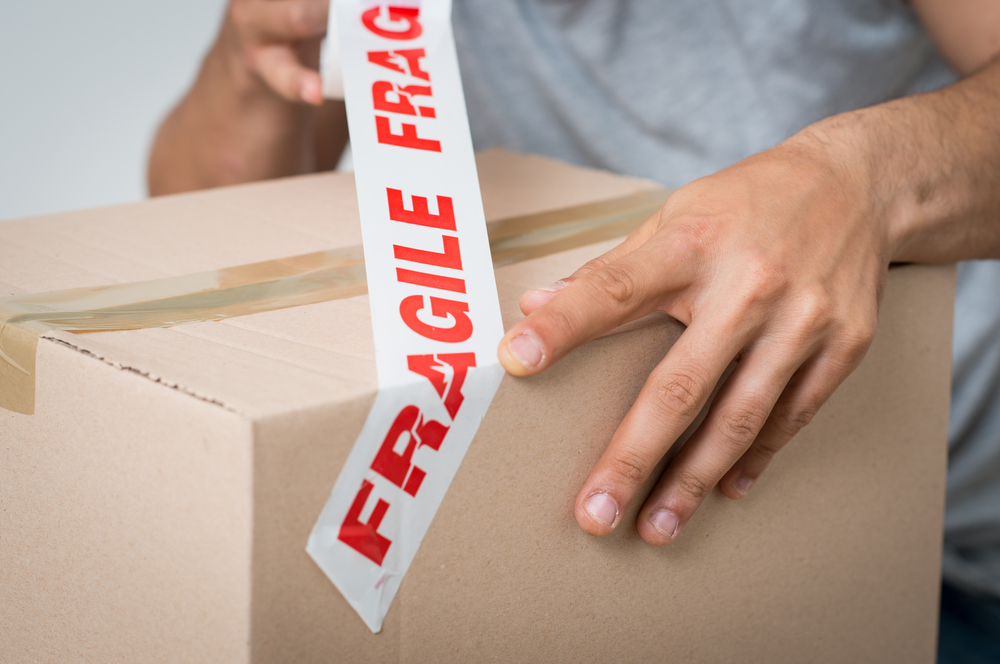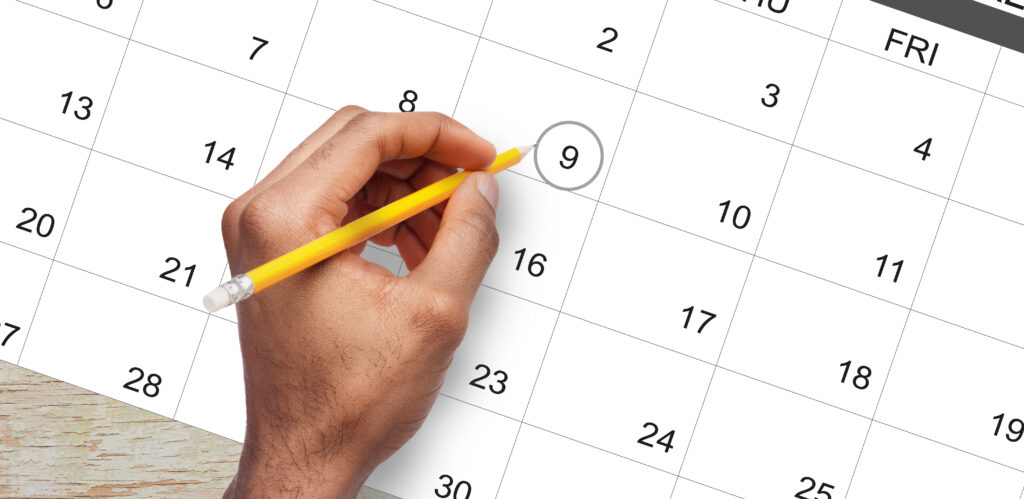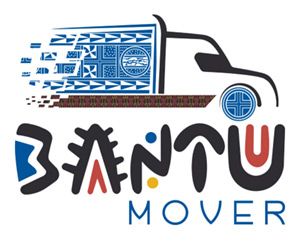Moving to a new area can be exciting, but it’s important to know what you’re getting into. Property taxes and local laws can vary widely from place to place. Before you pack up your life and head to a new city, take some time to research the tax situation and legal landscape of your potential new home.
Bantu Mover understands that relocating is about more than just moving boxes. We’re here to help you navigate the ins and outs of your move, from packing up your belongings to understanding the financial implications of your new address. Our team of expert movers can handle the heavy lifting while you focus on the important details of your transition.
Want to make your move as smooth as possible? Let’s dive into what you need to know about property taxes and local laws before you settle into your new place. Plus, we’ll show you how Bantu Mover’s reliable and affordable moving services can take the stress out of your relocation. Get ready for a hassle-free move that won’t break the bank!
Understanding Property Taxes in Your New Area

Property taxes can be a big chunk of your home expenses. Knowing how they work in your new area will help you plan your budget better. Let’s break it down.
Assessment of Property Value
Your property tax bill starts with how much your home is worth. The local government sends out assessors to figure this out. They look at:
- The size of your house
- Its age and condition
- Recent sales of similar homes nearby
Property assessments can happen yearly or less often. If you think the value is too high, you can usually appeal it. Keep an eye on your assessment notice!
Some areas use a “mill rate” to calculate taxes. One mill equals $1 for every $1,000 of assessed value. So if your home is worth $200,000 and the mill rate is 20, you’d owe $4,000 in property taxes.
Local Tax Rates and Regulations
Tax rates vary a lot from place to place. They depend on what services your area provides. Things like:
- Schools
- Police and fire departments
- Parks and recreation
Local governments set these rates based on their budget needs. Some areas have limits on how much taxes can go up each year. Others offer breaks for seniors or veterans.
You might pay your property taxes directly or through your mortgage company. Check with your lender to be sure. Taxes are usually due once or twice a year.
Impact on Household Budget
Property taxes can be a big expense. They often cost thousands of dollars a year. It’s smart to plan for them in your monthly budget.
Here’s a quick way to estimate:
- Find out last year’s tax bill for the home
- Divide by 12 to get a monthly amount
- Add a little extra in case rates go up
Remember, property taxes are part of your total housing costs. Lenders look at this when deciding if you qualify for a mortgage. They usually want your total housing costs to be less than 28% of your income.
If taxes are high in your new area, you might need to look for a less expensive home. Or you could cut other parts of your budget to make room.
Ready to make your move with confidence? Contact Bantu Mover for reliable, affordable moving services tailored to your needs!
Navigating Local Laws and Regulations
Moving to a new area means learning new rules. You’ll need to know about zoning, voter registration, and utility setup. Let’s break down these key areas to help you settle in smoothly.
Zoning Laws and Housing Regulations
Zoning laws can be tricky. They decide how you can use your property. Some areas only allow homes, while others mix homes and businesses.
Before you move, check:
- Property use rules
- Building height limits
- Parking requirements
- Noise restrictions
Housing regulations might surprise you. They cover things like:
- Fence heights
- Pet limits
- Home-based business rules
Don’t assume your old town’s rules apply in your new place. Ask the local planning office about zoning and housing laws. It’s better to know now than face fines later!
Change of Address and Voter Registration
You’ve got a new home – now make it official! Changing your address is crucial. Here’s a quick to-do list:
- Update your driver’s license
- Notify the post office
- Tell your bank and credit card companies
- Update your car registration
Voting in your new area is important too. You can usually register to vote when you update your driver’s license. If not, check your new city’s website for voter registration info.
Remember, some places have residency requirements for voting. You might need to live there for a certain time before you can vote in local elections.
Utilities and Internet Providers
Setting up utilities can be a pain, but it’s necessary. Start early to avoid sitting in the dark on move-in day!
Common utilities to set up:
- Electricity
- Water
- Gas
- Trash collection
Internet providers vary by area. Research options before you move. Compare:
- Speeds offered
- Prices
- Contract terms
Some areas have limited choices. Rural spots might only have satellite internet. City dwellers often have more options.
Don’t forget to cancel your old services. Set end dates for your move-out day to avoid extra charges.
Selecting a Reliable Moving Company
![]()
Picking the right movers can make or break your relocation experience. Let’s explore how to find trustworthy professionals who’ll handle your belongings with care.
Researching and Comparing Local Movers
Start your search by asking friends and family for recommendations. Their firsthand experiences can be gold. Next, hop online and check out review sites. Look for movers with lots of positive feedback.
Make a list of potential companies and get quotes from at least three. Be wary of estimates that seem too good to be true – they often are!
Don’t forget to check if they’re members of professional associations. This can be a good sign of their commitment to quality.
Pro tip: Create a simple spreadsheet to compare prices, services, and reviews side by side. It’ll make your decision much easier!
Understanding Licensing and Insurance
Before you shake hands with any mover, make sure they’re legit. Check their licensing status with the Federal Motor Carrier Safety Administration (FMCSA). This agency oversees interstate movers and keeps records of their safety and legal compliance.
For local moves, contact your state’s transportation department to verify licenses. Don’t shy away from asking movers directly about their credentials.
Insurance is crucial too. Your mover should offer basic liability coverage at no extra cost. But for valuable items, you might want to consider additional protection.
Remember: A reputable mover will be happy to show you their paperwork. If they dodge the question, that’s a red flag!
Evaluating Customer Service and Reliability
Great customer service often indicates a reliable mover. Pay attention to how they interact with you from your first contact. Are they prompt in responding? Do they answer your questions clearly?
Look for movers who offer in-home estimates. This shows they’re thorough and committed to accuracy. During the estimate, observe their professionalism. Are they in uniform? Do they arrive on time?
Check if they have a physical office you can visit. It’s a good sign of an established business. Also, ask about their equipment and moving techniques. A reliable company will have well-maintained trucks and proper tools.
Don’t forget to inquire about their policies on delays or damages. A trustworthy mover will have clear procedures in place.
Cost Considerations When Moving
Moving can hit your wallet hard if you’re not careful. Let’s break down the expenses you’ll face and how to keep them in check.
Estimating Total Moving Expenses
Moving costs can vary widely, from $950 to $17,000 for an out-of-state move. Your final bill depends on a few key factors:
- Distance: Long-distance moves cost more
- Home size: More stuff = higher price
- Timing: Peak season rates are pricier
To get a ballpark figure:
- Request quotes from 3-5 movers
- Add up packing supplies (boxes, tape, bubble wrap)
- Factor in travel costs (gas, hotels, meals)
Don’t forget hidden costs like pet transport or storage fees. A good rule of thumb? Add 10% to your estimate for unexpected expenses.
Additional Services and Their Costs
Moving companies offer extras that can make your life easier – but they’ll cost you. Here’s a quick rundown:
- Packing services: $25-$35 per hour per mover
- Furniture disassembly/reassembly: $100-$200 per item
- Specialty item moving (pianos, safes): $100-$1000+
- Storage: $50-$300 per month
Professional packing can save time and stress, but it’s pricey. If you’re on a budget, consider a hybrid approach. Pack easy items yourself and leave fragile or bulky stuff to the pros.
Budgeting for Moving and Packing Services
Creating a realistic budget is key to avoiding financial surprises. Here’s how to plan:
- Start saving early: Aim for 3-6 months before your move
- Use a moving cost calculator for a rough estimate
- Get written quotes from movers
- Set aside 10-20% of your total for unexpected costs
Pro tip: If you’re moving for work, ask about relocation assistance. Some employers offer to cover part or all of your moving expenses.
Remember, the cheapest option isn’t always the best. Balance cost with reliability to ensure your move goes smoothly. Ready to start planning? Get a free quote from Bantu Mover today!
Packing and Managing Your Belongings

Getting your stuff from point A to point B takes planning and care. Let’s look at how to organize, pack, and protect your things for the big move.
Creating a Detailed Inventory
Start by making a list of everything you own. It might sound boring, but trust us, it’s a game-changer. Go room by room, jotting down items big and small.
Don’t forget to peek in closets and drawers. You might find that sweater you thought you lost last winter!
For each item, note its condition. This helps if anything gets damaged during the move. Plus, it’s a great chance to decide what you actually want to keep.
Consider using an app to track your inventory. Many let you snap photos and add notes, making the process a breeze.
Securing Sufficient Packing Supplies
Now that you know what you’re packing, it’s time to gear up. You’ll need:
- Boxes (various sizes)
- Packing tape
- Bubble wrap
- Packing paper
- Markers for labeling
Don’t skimp on quality. Cheap tape might save you a few bucks now, but it won’t be funny when your box of plates falls apart mid-move.
Get sturdy boxes from local stores or your moving company. They often have used boxes at a discount.
Pro tip: Grab more supplies than you think you’ll need. Running out mid-pack is no fun.
Furniture and Fragile Items Packing Strategies
Let’s tackle the big stuff. For furniture:
- Remove any detachable parts
- Wrap corners with padding
- Cover the whole piece with moving blankets
Now for those delicate items. Wrap each piece individually in bubble wrap or packing paper. Then, nestle them in boxes with plenty of cushioning.
Use specialized boxes for extra fragile items like dishes or glasses. They have built-in dividers to keep things safe.
Don’t forget to label boxes as “FRAGILE” in big, bold letters. Your future self (and movers) will thank you.
Finalizing Your Move

Getting ready for the big day takes some planning. Let’s go over the key steps to make your move smooth and stress-free.
Confirming Details with the Moving Company
Double-check everything with your movers a week before the move. Call Bantu Mover to confirm:
• Date and time of arrival • Pickup and delivery addresses • Special items needing extra care • Payment method and amount due
Ask about their truck size and if they need parking permits. Make sure you have their contact info handy.
Get a final estimate in writing. This helps avoid surprise costs later. If anything’s changed since your first quote, let them know now.
Preparing for Moving Day
Create a moving day kit with essentials:
• Snacks and water • Basic tools (screwdriver, tape, scissors) • Cleaning supplies • First-aid kit • Important documents and valuables
Pack a separate bag with clothes and toiletries for your first few days.
Label boxes clearly. Mark fragile items and note which room they go in. This makes unpacking easier.
Finish packing at least a day before. Leave out only what you’ll need that night and morning.
Responsibilities Upon Arrival
When the movers arrive, give them a quick tour. Point out fragile items and any special instructions.
Check your inventory as items are loaded. This helps track your stuff and spot any issues early.
At your new place, direct the movers where to put furniture and boxes. Check items off your list as they come in.
Before the movers leave, make sure everything’s there and undamaged. Note any issues on the paperwork.
Tip your movers if you’re happy with their work. It’s not required, but it’s a nice gesture for a job well done.
Ready to make your move a breeze? Give Bantu Mover a call. Their team knows how to handle your move with care and keep things fun along the way. Get your free quote today and see how easy moving can be!
Financial Planning Post-Move
Moving to a new area brings fresh financial challenges. Let’s explore how to manage your money, set up essential services, and make the most of local amenities in your new home.
Managing Cash Flow and Expenses
Moving can be costly, so it’s crucial to keep a close eye on your finances. Create a new budget that reflects your changed circumstances. Include all your regular expenses like rent or mortgage payments, utilities, and groceries.
Don’t forget to factor in any new costs specific to your area. Property taxes and insurance rates may differ from your previous location.
Update your bank and credit card companies with your new address. This ensures you receive important financial documents and avoid missed payments.
Set up automatic bill payments for recurring expenses. This helps you avoid late fees and keeps your credit score healthy.
Consider opening a local bank account if you’ve moved to a new state or country. This can make managing your day-to-day finances easier.
Setting Up Services in Your New Home

Getting your new home up and running smoothly is key to settling in quickly. Start by researching local internet providers. Compare prices and speeds to find the best deal for your needs.
Contact utility companies to set up electricity, water, and gas services. Some may require deposits, so budget for these upfront costs.
Look into local waste management services. Find out collection days and any recycling programs in your area.
If you’re renting, check what services your landlord covers. This can save you from paying for things unnecessarily.
Don’t forget about home security. Research alarm systems or smart home devices that can help protect your new place.
Accessing Local Amenities and Services
Your new neighborhood likely offers a wealth of services and amenities. Take time to explore and find the best options for your needs.
Locate nearby grocery stores, pharmacies, and healthcare providers. Update your insurance information with new doctors and dentists.
Find local moving and packing services if you need help settling in. Compare prices and read reviews to find reliable, affordable options.
Check out public transportation options. This can save you money on gas and parking if you live in a city.
Look for free or low-cost entertainment in your area. Parks, libraries, and community centers often offer activities that won’t break your budget.
Join local social media groups or forums. These can be great sources of information about deals and services in your new community.
Ready to make your move? Contact Bantu Mover today for expert assistance with all your relocation needs!

